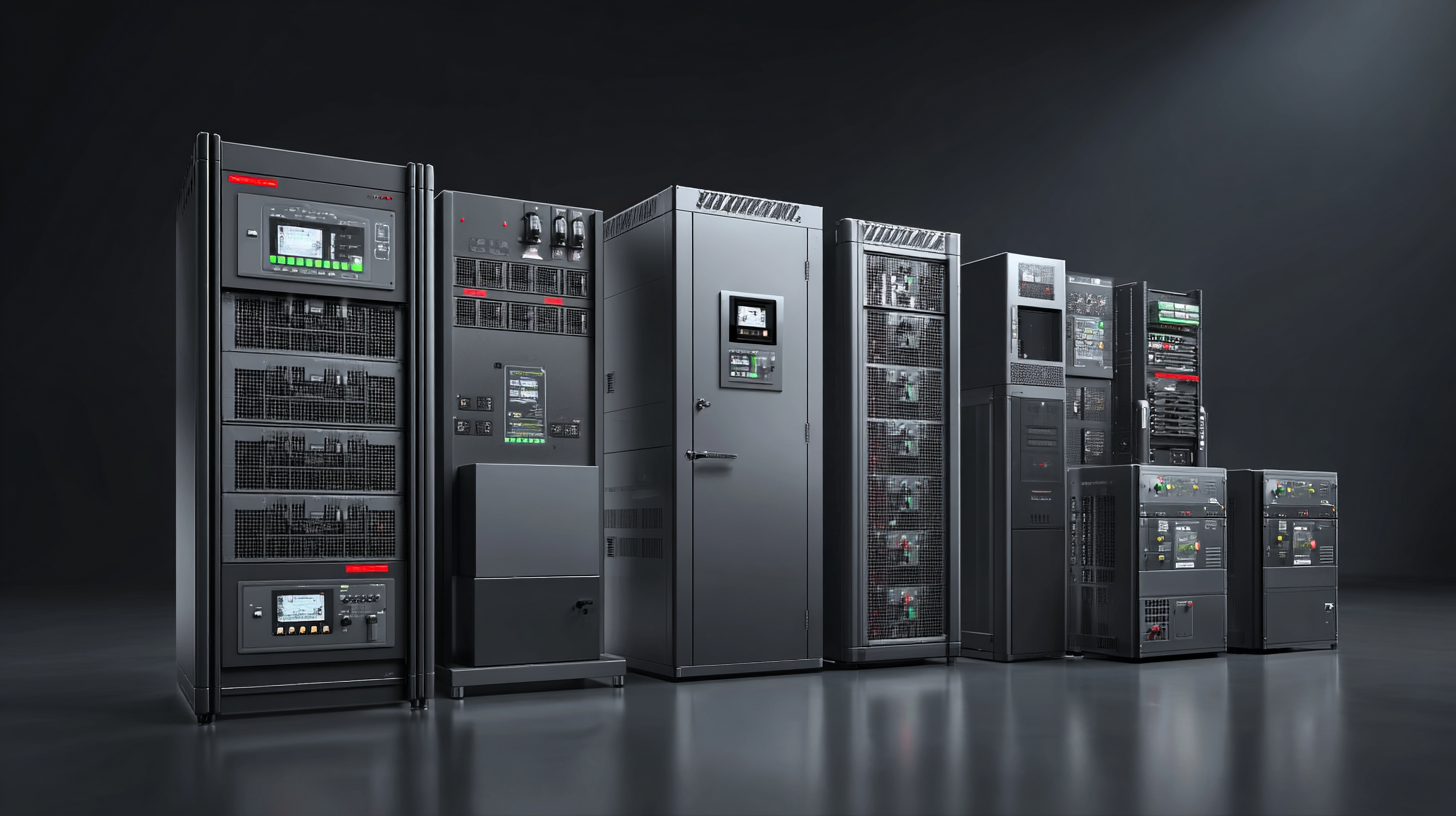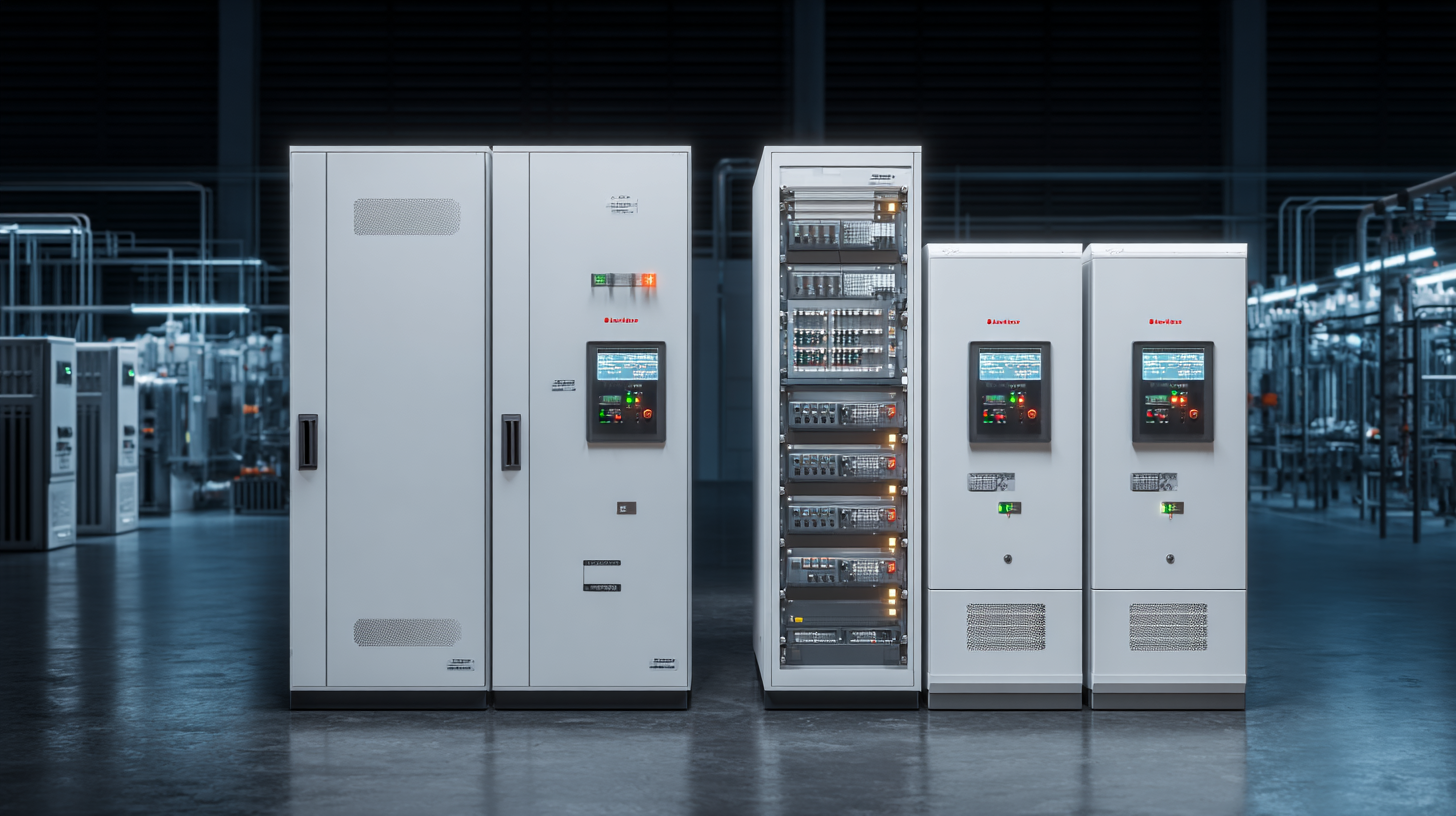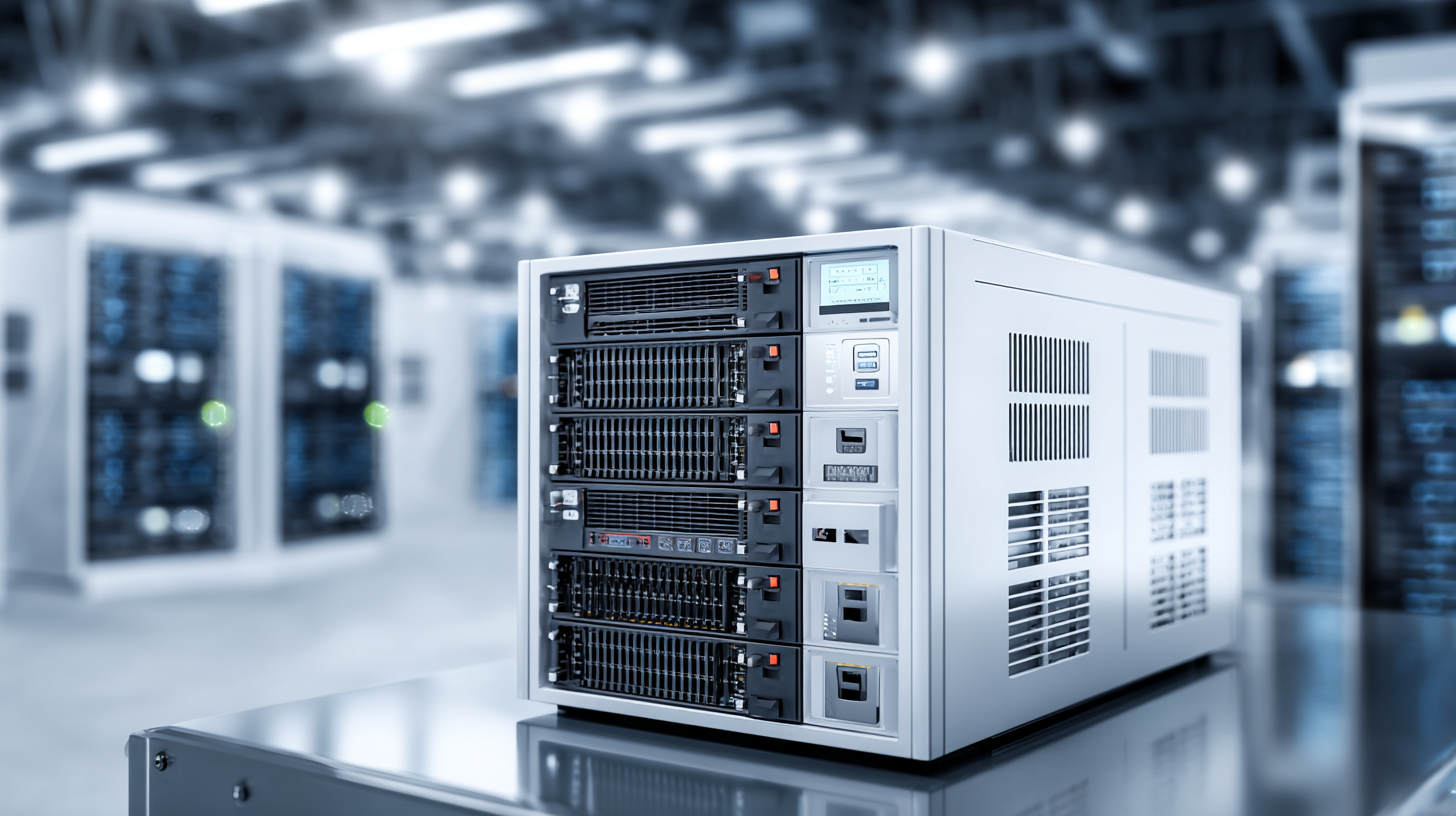Blog
Unlocking the Advantages of the Best Backup Power Supply for Your Business Efficiency
In today's fast-paced business environment, maintaining operational efficiency is paramount, and one crucial aspect that often gets overlooked is the reliability of power sources. A dependable Backup Power Supply is not just an accessory; it is a vital component that ensures business continuity during unexpected outages. As organizations increasingly depend on technology and digital infrastructure, the need for a reliable source of backup power becomes more apparent. However, selecting the best backup power supply for your business involves more than just picking the first option that appears. It requires careful consideration of the manufacturer's reputation, product features, and customer support.

In this blog, we will discuss the advantages of integrating a quality backup power supply into your business operations and provide insights on how to choose the right manufacturer to meet your specific needs, ensuring your business remains operational and efficient, regardless of external circumstances.
Understanding the Importance of Backup Power Supplies for Business Continuity
In today's business landscape, maintaining uninterrupted operations is essential, and backup power supplies play a critical role in ensuring business continuity. A sudden power outage can lead to data loss, decreased productivity, and financial setbacks. Therefore, investing in a reliable backup power system is not merely a precaution; it’s a necessity for sustaining operations.
**Tip 1:** Evaluate your power needs by identifying the critical systems and equipment that require support during outages. This assessment will guide you in selecting a backup solution that meets your business's specific requirements.
Moreover, with the advancements in technology, businesses have more options than ever when it comes to backup power supplies. From uninterruptible power supplies (UPS) to generators, the right choice can safeguard against unexpected interruptions. Additionally, regular maintenance and testing of these systems are vital to ensure they're ready when needed.
**Tip 2:** Establish a routine for testing and maintaining your backup power systems to ensure they function optimally during an emergency. Keeping a well-documented maintenance log can help identify any issues before they become critical.
Key Technical Specifications to Look for in Your Backup Power Supply
When selecting the best backup power supply for your business, understanding key technical specifications is essential for maximizing efficiency. One of the most crucial specifications is the power rating, measured in VA (volt-amperes) or watts. According to a recent study by MarketsandMarkets, the global uninterruptible power supply (UPS) market is projected to grow from $10.5 billion in 2022 to $16.9 billion by 2027, indicating an increasing reliance on robust power solutions. This growth underscores the importance of choosing a backup system with a power rating that exceeds your current needs, allowing for future expansions.
Another vital aspect is the battery runtime. Businesses need to ensure that their backup power supply can sustain operations during outages. Research from Frost & Sullivan highlights that a significant percentage of companies suffer financial losses due to power disruptions, emphasizing the need for a system that can provide adequate runtime. Look for systems with advanced battery management technology that delivers longer cycle times and reduces maintenance costs. Additionally, features like automatic voltage regulation and surge protection should not be overlooked, as they safeguard sensitive equipment from fluctuations and potential damage. These specifications not only enhance operational efficiency but also ensure your business remains resilient against unforeseen power challenges.

How to Choose the Right Backup Power Supply for Your Unique Business Needs
When choosing the right backup power supply for your business, it's essential to consider your unique operational needs and the potential risks associated with power disruptions. The increasing reliance on technology in various sectors necessitates robust and efficient power solutions. For instance, the portable power station market is projected to expand significantly, indicating a growing awareness among businesses about the importance of reliable backup systems. Factors such as efficiency, capacity, and portability should guide your selection process.

Additionally, the rising demand for uninterrupted power supply systems, particularly DIN Rail Mount lead-acid battery UPS, reflects a shift in how industries approach power reliability. A CAGR of 9.3% in this segment underscores the necessity for compact and efficient power solutions in telecommunications and data centers. Understanding your specific requirements, such as the types of equipment you need to support and the duration of backup power needed, will enable you to make a more informed decision, ensuring your business can maintain efficiency even during unforeseen electrical outages.
Integrating Backup Power Solutions with Your Existing Infrastructure
In today's fast-paced business environment, integrating backup power solutions with existing infrastructure is critical for maintaining operational efficiency. According to a report by the Ponemon Institute, 60% of businesses experience at least one outage annually, with the average cost of downtime exceeding $8,000 per minute. Implementing a robust backup power system can significantly mitigate these risks, ensuring seamless operations during unexpected disruptions. Businesses that have integrated backup solutions report a 30% increase in overall productivity, illustrating how a reliable power supply can enhance team performance and customer satisfaction.
To maximize the benefits of backup power systems, companies must carefully evaluate their current infrastructure. A study by the International Data Corporation (IDC) highlights that 40% of enterprises that upgraded their backup systems saw a marked improvement in energy efficiency and cost savings. By seamlessly incorporating battery backups or generators, businesses can create a more resilient energy ecosystem. This not only provides peace of mind during outages but also aligns with sustainability goals, as many modern backup solutions now offer eco-friendly options to reduce carbon footprints while ensuring uninterrupted power supply.
Best Practices for Maintaining and Testing Your Backup Power Supply
Maintaining and testing your backup power supply is crucial for ensuring business continuity. According to a report from the U.S. Department of Energy, 85% of businesses that experience a significant power outage suffer a loss in productivity, highlighting the importance of reliable backup systems. Regular maintenance can prevent up to 90% of potential outages caused by equipment failures. This includes routine inspections and replacing worn-out components before they fail.
Tip: Schedule biannual maintenance checks for your backup power supply, ensuring batteries are tested and connections are secure. This proactive approach not only extends the life of your equipment but also helps identify any underlying issues before they escalate.
Testing your backup system is equally important. The Federal Emergency Management Agency (FEMA) recommends conducting monthly tests of your backup power supply to ensure it operates under load conditions. This practice helps businesses fine-tune their power strategies, aligning backup systems with operational needs.
Tip: Implement a log for testing dates and outcomes, noting any discrepancies or maintenance actions taken. This will create a comprehensive record that can be invaluable during audits and for optimizing future performance.
